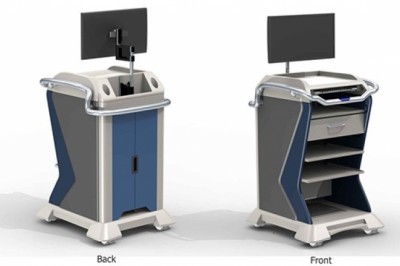views

Diagnosis and Treatment
 According to the American Association of Neurological Surgeons (AANS), anywhere from two to four million Americans suffer a traumatic brain injury every year, about one-tenth of them occurring during sports or recreational activities. For athletes under the age of 20, approximately one in every five traumatic brain injuries is sports-related.
According to the American Association of Neurological Surgeons (AANS), anywhere from two to four million Americans suffer a traumatic brain injury every year, about one-tenth of them occurring during sports or recreational activities. For athletes under the age of 20, approximately one in every five traumatic brain injuries is sports-related.
A traumatic brain injury (TBI) may result from a blunt-force blow to the head, a penetrating injury, or an event in which the head moves violently back and forth (typically referred to as whiplash). A mild TBI, customarily referred to as a concussion, can have symptoms that last for a few days; typically, the person will see full recovery within a week or two. Moderate-to-severe TBI can cause permanent or long-term cognitive dysfunction, loss of motor skills, difficulty with speech, or even death.
Diagnosing and Treating a Sports-Related Traumatic Brain Injury
Because many sports involve some degree of contact, and some sports (such as football and hockey) involve high G-force impact, it can be difficult to determine when a “hit” is substantial enough to cause concussion or TBI. The first diagnosis of such an injury is often made on the field or during the game. Unfortunately, many of the most telling symptoms of a head injury don’t appear immediately. Because every concussion has the potential to be a serious traumatic brain injury, the CDC recommends the following:
- Immediately check any athlete who receives a bump or blow to the head or upper body, checking for dizziness or confusion. If a player moves slowly or clumsily, fails to respond immediately to questions or instructions, or forgets an assignment, immediately remove that player. If you have any doubts whatsoever, take the player out of the game.
- Bring in a healthcare professional immediately. If one is present, have a team doctor conduct an assessment. Be willing to have the athlete taken to the hospital, if necessary.
- Keep the athlete out of play and practice until cleared by an experienced and knowledgeable medical professional. Individuals who experience one concussion are at greater risk of suffering another.
Contact Advantage Healthcare Systems
At Advantage Healthcare Systems, our medical professionals have considerable experience successfully treating concussion and other traumatic brain injuries. To schedule an assessment, call our offices toll-free at 1-866-586-1755 or complete the form below. We treat patients at locations across Texas, including Fort Worth, Dallas, and San Antonio.












